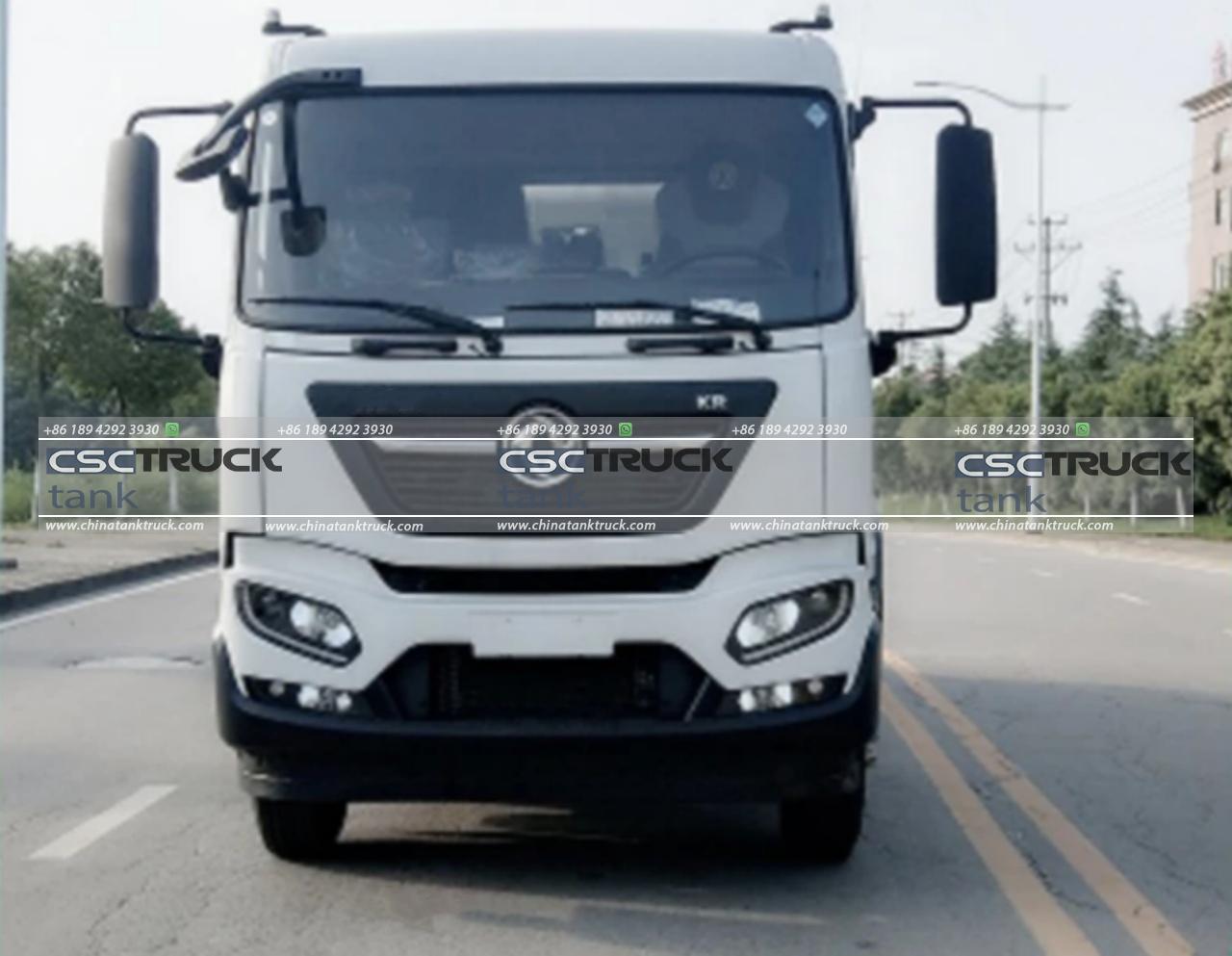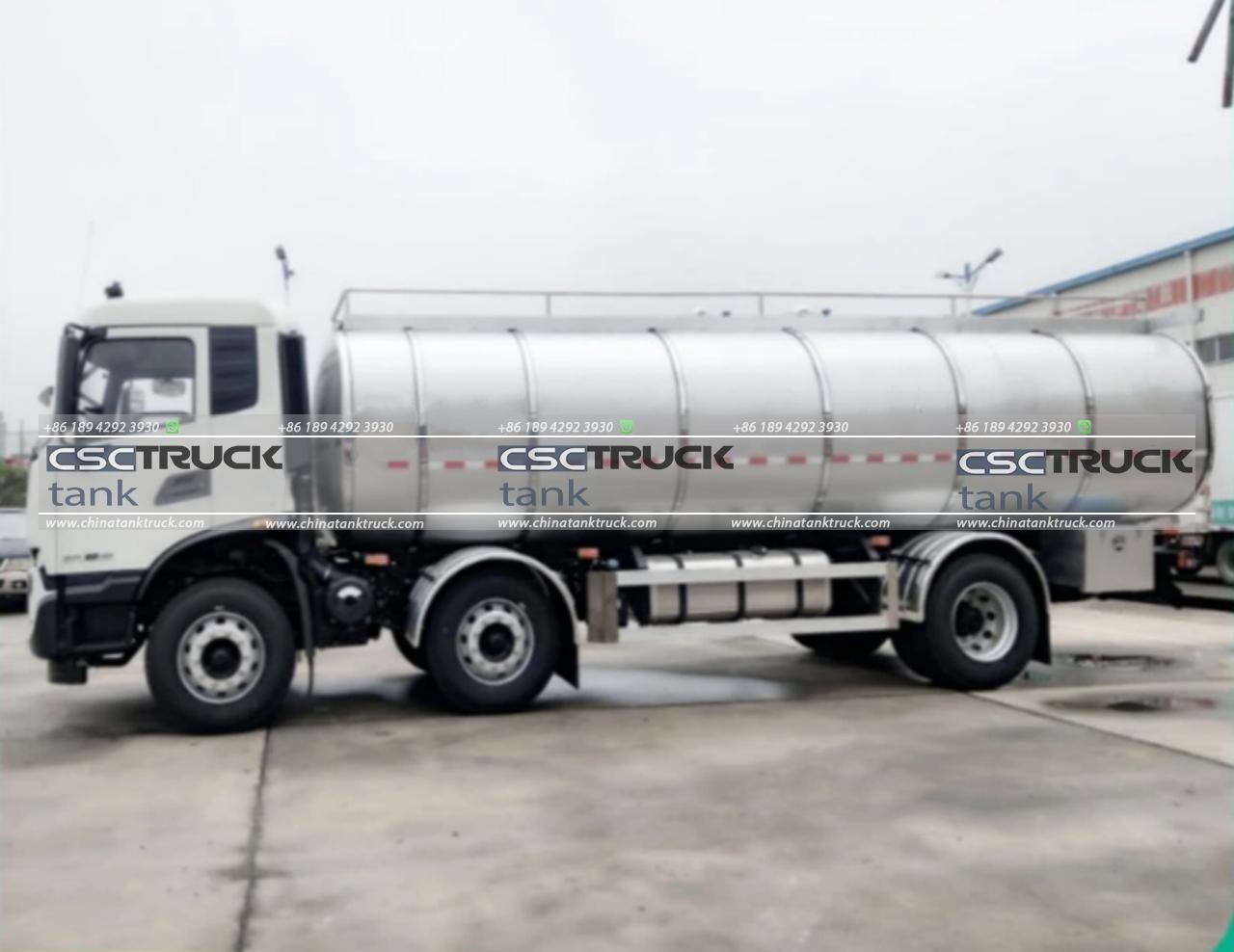Milk tank trucks are the unsung heroes of the dairy industry, playing a pivotal role in the journey from farm to table. For dairy farmers, investing in efficient and reliable milk transport solutions is crucial to maintaining product quality and ensuring a seamless supply chain. This article delves into the importance of milk tank trucks, their features, and what farmers should consider when looking for milk tank trucks for sale.
The Importance of Milk Tank Trucks
Milk tank trucks are specialized vehicles designed to transport raw milk from dairy farms to processing plants. These trucks are essential for several reasons:
1. Maintaining Milk Quality: Raw milk is highly perishable and needs to be transported under strict temperature controls to prevent spoilage. Milk tank trucks are equipped with insulated and refrigerated tanks that keep the milk at an optimal temperature, preserving its freshness and quality.
2. Efficiency: Efficient transport is vital to the dairy industry. Milk tank trucks are designed to quickly and safely transport large volumes of milk, ensuring that it reaches processing facilities promptly. This efficiency reduces the risk of spoilage and maximizes the shelf life of dairy products.
3. Sanitation: Hygiene is paramount in daily transport. Milk tank trucks are constructed with materials that are easy to clean and sanitize, preventing contamination and ensuring that the milk remains safe for consumption.

Key Features of Milk Tank Trucks
When looking for milk tank trucks for sale, it’s important to consider the key features that make these vehicles suitable for dairy transport:
1. Insulated Tanks: The tanks of milk transport trucks are heavily insulated to maintain the milk at a constant temperature, usually around 4°C (39°F). This insulation is critical to preventing temperature fluctuations that could lead to bacterial growth and spoilage.
2. Refrigeration Units: Many modern milk tank trucks come equipped with refrigeration units to cool the milk during transport actively. This is especially important for longer journeys where passive insulation alone might not suffice.
3. Stainless Steel Construction: The tanks are typically made from stainless steel, which is resistant to corrosion and easy to clean. Stainless steel is also non-reactive, ensuring that it does not alter the taste or quality of the milk.
4. Pumps and Hoses: Efficient loading and unloading of milk are facilitated by specialized pumps and hoses. These components are designed to handle large volumes quickly while maintaining sanitary conditions.
5. Capacity: Milk tank trucks come in various sizes, with capacities ranging from a few thousand liters to tens of thousands of liters. The choice of capacity depends on the scale of the dairy operation and the distance to the processing plant.
6. Temperature Monitoring: Advanced milk tank trucks are equipped with temperature monitoring systems that provide real-time data on the milk’s temperature throughout the journey. This ensures that any deviations are quickly identified and addressed.
Factors to Consider When Purchasing a Milk Tank Truck
When searching for milk tank trucks for sale, dairy farmers should consider several factors to ensure they invest in a vehicle that meets their needs:
1. Capacity Needs: Assess the volume of milk your farm produces and the distance to the processing plant. This will help determine the appropriate tank capacity. Overestimating capacity can lead to unnecessary costs while underestimating it can result in multiple trips and inefficiency.
2. Regulatory Compliance: Ensure that the milk tank truck complies with local and international dairy transport regulations. This includes sanitation standards, temperature control requirements, and licensing.
3. New vs. Used Trucks: Decide whether to purchase a new or used milk tank truck. New trucks offer the latest technology and warranties but come at a higher cost. Used trucks are more affordable but may require more maintenance.
4. Maintenance and Service: Consider the availability of maintenance and repair services for the truck. A reliable service network is crucial for minimizing downtime and ensuring the truck remains in optimal condition.
5. Technological Features: Modern milk tank trucks come with a range of technological features, such as GPS tracking, temperature monitoring, and automated cleaning systems. These features can enhance efficiency and provide valuable data for managing the dairy supply chain.
6. Cost: Budget is always a key consideration. Compare prices from different suppliers and consider financing options if necessary. It’s important to balance cost with the truck’s features and reliability.

The Future of Milk Transport
The dairy industry is continuously evolving, and milk transport is no exception. Innovations in technology and logistics are shaping the future of milk tank trucks:
1. Automated Cleaning Systems: Future milk tank trucks may feature fully automated cleaning systems that ensure the tank is sanitized after each delivery, reducing labor costs and ensuring consistent hygiene standards.
2. Advanced Temperature Control: Innovations in refrigeration technology are leading to more efficient and precise temperature control systems, ensuring that milk remains at the ideal temperature regardless of external conditions.
3. Sustainable Transport: As the industry moves towards sustainability, there is a growing interest in eco-friendly milk tank trucks. This includes the use of alternative fuels, electric trucks, and more efficient route planning to reduce carbon emissions.
4. Smart Logistics: The integration of smart logistics systems allows for real-time tracking and management of milk deliveries. This can improve route efficiency, reduce delays, and provide valuable data for optimizing the supply chain.
Conclusion
Milk tank trucks are a critical component of the dairy supply chain, ensuring that milk is transported efficiently, safely, and hygienically from farms to processing plants. For dairy farmers, investing in the right milk transport solution is essential to maintaining product quality and operational efficiency. By considering factors such as capacity, regulatory compliance, and technological features, farmers can find the ideal milk tank truck to meet their needs. As the industry continues to innovate, the future of milk transport promises even greater efficiency and sustainability, benefiting both producers and consumers alike.

